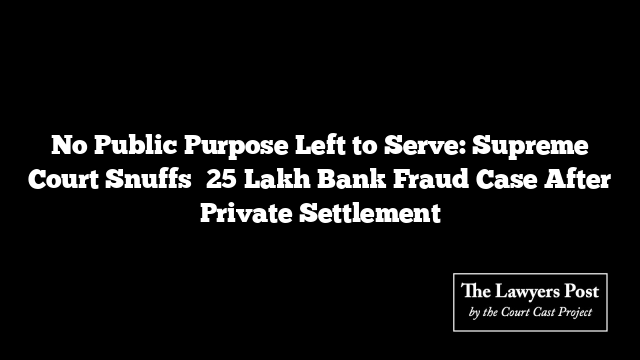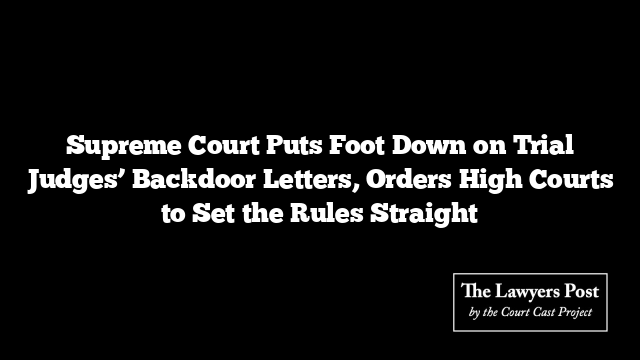A ₹25.89 lakh fraud case that once sparked criminal charges and a CBI investigation has now met a quiet end in the Supreme Court, not with a bang, but with the gavel of pragmatism. In N.S. Gnaneshwaran & Others vs. The Inspector of Police & Another, the apex court ruled that once the bank had settled the matter through a One-Time Settlement (OTS), dragging the accused through a full criminal trial would be pointless.
The origin story of this now-extinguished case begins with a fraud allegation: funds meant for M/s Vinayaka Corporation were allegedly misused, prompting the Bank to complain. The CBI leapt into action, registering a case and slapping the accused—nine in all—with charges under criminal conspiracy, cheating, forgery, and even the Prevention of Corruption Act.
But then came the pivot: the principal accused struck a deal with the Bank—₹52.79 lakh on the table, case all but buried. Armed with this resolution, the accused approached the Madras High Court to quash the criminal proceedings. The High Court, however, refused, reasoning that settlement doesn’t cancel out the need for accountability when a prima facie case exists.
Unfazed, the appellants knocked on the doors of the Supreme Court.
There, Justices Vikram Nath and Sandeep Mehta took a different view. The Court noted that the dispute, though dressed in criminal robes, was ultimately financial in nature—and fully settled. With no pending dues, no protest from the Bank, and similar co-accused already let off by the High Court in parallel proceedings, the bench saw no reason to keep the criminal case alive.
“The recovery proceedings before the tribunal have been dismissed as settled, and no residual claim survives,” the Court remarked, underscoring that no greater public interest was being served by keeping the prosecution on life support.
The justices emphasized that not every financial dispute wrapped in criminal allegations needs to be prosecuted to the bitter end—especially when it’s private, resolved, and devoid of any public harm still lingering.
In the end, the Supreme Court allowed the appeals, bringing the curtain down on a case where the law decided to stand aside once restitution was made and the fire had gone out.





